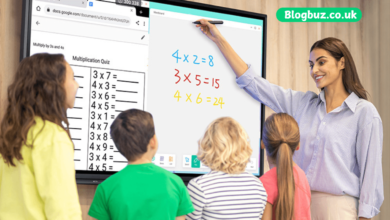Raising a Confident and Comprehending Reader

Every parent desires to see their child flourish, and one of the most significant milestones in childhood development is learning to read. Reading goes beyond recognizing letters and sounding out words; it involves fostering comprehension, confidence, and critical thinking skills. As a parent, you play an essential role in nurturing your child’s reading journey, guiding them from early literacy toward becoming a confident, comprehending reader. This guide provides strategies, insights, and resources to help you effectively support your child’s development as they embrace reading and learning.
Understanding the Importance of Early Literacy
Early literacy is foundational in your child’s educational journey, significantly influencing future academic success. It encompasses more than learning ABCs or memorizing words-it involves understanding that text carries meaning, developing vocabulary, listening and comprehension skills, and cultivating an enjoyment of reading. Early literacy skills begin to develop from infancy, so your role as a parent begins early too. Children who receive frequent exposure to books and reading at home typically enter school with a robust foundation, setting them on a trajectory toward lifelong success.
Building Vocabulary and Language Skills at Home
Children’s reading skills are deeply tied to their vocabulary and language development. The richer a child’s vocabulary, the easier they find it to understand what they read. Here are effective ways you can help expand your child’s vocabulary:
- Read Aloud Daily: Make it a habit to read books aloud every day, even if your child can read independently. Hearing language spoken fluently and expressively increases understanding and engagement.
- Encourage Conversation: Regularly converse with your child about their day, their interests, or current events. Ask open-ended questions to stimulate deeper thinking and explanation.
- Introduce New Words Naturally: When you encounter new words while reading or talking, pause and explain the meaning briefly. Using the word later reinforces understanding.
- Narrate Daily Activities: Talking through routines, chores, or cooking dinner provides natural context and vocabulary enrichment.
Creating a Home Environment that Encourages Reading
A positive home environment can profoundly influence your child’s attitudes toward reading. It’s not only about having books at home; it’s about creating a space and routine that encourage and value reading.
Establishing a Reading Routine
Consistency helps your child understand that reading is an essential and enjoyable part of daily life. Setting a specific daily reading time can foster a lasting habit. Consider:
- A bedtime story routine each night.
- A weekend family reading hour.
- Short daily reading sessions after school.
Developing a Cozy Reading Nook
Designating a comfortable and inviting area dedicated to reading can greatly enhance your child’s enthusiasm for books. Include comfortable seating, ample lighting, pillows, blankets, and easy access to books.
Choosing the Right Books
Selecting appropriate books that match your child’s interests and reading level is critical. Appropriate books challenge your child without causing frustration. Keep these points in mind:
- Follow Interests: Books about topics your child loves naturally hold their attention and encourage reading practice.
- Diversify Genres: Introduce a variety of genres-fiction, non-fiction, poetry, and biographies-to expand your child’s horizons and critical thinking.
- Age and Reading-Level Appropriateness: Choose books aligned with your child’s reading level to boost their confidence while gently challenging their abilities.
- Leverage Series Books: Book series can significantly motivate children because of familiar characters and ongoing storylines, helping maintain interest and enthusiasm.
Encouraging Comprehension and Critical Thinking
Confident reading extends beyond recognizing words; it involves understanding content, drawing inferences, and analyzing information. Here’s how you can promote deeper comprehension:
Ask Thought-Provoking Questions
Encourage your child to think critically by asking open-ended questions before, during, and after reading:
- “What do you think will happen next?”
- “Why did the character make that choice?”
- “Can you summarize what happened in this chapter?”
Encourage Predictions and Connections
Prompt your child to predict future events and make connections with their own experiences or other books, movies, or real-world events.
Discuss Themes and Morals
Have conversations about the themes or lessons found in the stories you read. This helps your child build empathy, moral reasoning, and interpretative skills.
Modeling a Positive Attitude Toward Reading
Your attitude toward reading significantly impacts your child’s perception. If you regularly show enthusiasm for reading and openly discuss your enjoyment of books, your child is likely to adopt similar attitudes.
- Read in Front of Your Child: Let your child see you reading books, newspapers, magazines, or e-readers, showing that reading is enjoyable and valuable.
- Talk About Books You Enjoy: Share your excitement or insights about books you’re reading, including what you’ve learned or found intriguing.
Identifying and Supporting Struggling Readers
Every child learns at their own pace, and some children face particular challenges in reading. It’s crucial to identify and address any struggles early.
- Look for Warning Signs: Difficulty recognizing letters, repeated frustration during reading, or trouble remembering or understanding what they’ve read are signs your child may need extra support.
- Provide Extra Support at Home: Practice patience and praise effort, not just results. Slow down, provide more direct instruction, and seek resources or specialists when necessary.
- Coordinate with Teachers: Communicate openly with your child’s teachers to support consistent strategies at home and school.
Free Printable Resources to Enhance Your Child’s Reading Skills
Fortunately, supporting your child’s literacy doesn’t have to be expensive. Countless free, high-quality printable resources are available online, including worksheets, comprehension questions, phonics games, and vocabulary-building activities. These resources can help you create structured, effective reading practice at home:
- Printable Worksheets: There are many websites that offer a vast range of free printables designed for specific ages, skills, and interests specifically for reading.
- Reading Logs and Incentive Charts: Using printable reading logs or charts to track progress can motivate children and give them a sense of accomplishment.
- Flashcards and Phonics Materials: Free printable phonics cards, sight-word flashcards, and matching games can help solidify foundational skills.
- Comprehension Questions: Online resources provide printable question prompts and graphic organizers to improve reading comprehension and analysis skills.
Integrating these resources into your routine can significantly reinforce your child’s reading abilities without extra costs.
Using Technology Wisely
Technology offers many valuable tools to aid reading, from audiobooks to educational apps and interactive e-books. Technology can:
- Provide diverse ways to experience stories (audio, visuals, interactive questions).
- Motivate reluctant readers by adding interactive elements.
- Help children build independent reading and comprehension skills through engaging digital resources.
However, balance is essential. Ensure technology complements-but doesn’t replace-traditional reading experiences.
Celebrating Milestones and Encouraging Growth
Finally, celebrating your child’s growth in reading is vital to sustaining motivation and self-esteem. Recognize their effort, progress, and achievements, big and small. Celebrations could be verbal praise, small rewards, or special activities related to their reading milestones, like choosing new books or visiting libraries or bookstores.




